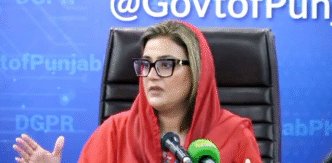Certainly. Here is a comprehensive analysis of the case and its broader context:
A local court in Karachi has granted bail to a couple accused of brutally torturing their 12-year-old domestic worker, Zainab, who suffered severe burn injuries. The bail was approved against surety bonds of Rs 30,000 each .
📊 Case Background and Court Decision
Incident Details: The victim, Zainab, was allegedly burned with a hot iron by her employers while ironing clothes. She suffered burns on her back, hands, and legs and was hospitalized in the Burns Ward of Civil Hospital Karachi .
Court Proceedings: The judicial magistrate granted bail to the couple, rejecting the police’s request for physical remand. The defense lawyer claimed the complainant was attempting to blackmail the accused, while the victim’s mother stated her daughter was forced to work without rest and tortured over a minor mistake .
💡 Broader Context and Patterns
This case is not isolated and reflects systemic issues in Pakistan regarding the treatment of domestic workers, particularly minors. Here are some key points:
Recurrence of Similar Cases:
In another case, a couple in Rawalpindi was detained for allegedly torturing their 13-year-old maid, Iqra, to death over accusations of stealing chocolate. This sparked widespread outrage and debates about child labor and mistreatment of domestic workers .
The infamous Tayyaba torture case involved a judge and his wife accused of torturing their 10-year-old maid. Although they were initially sentenced, their penalties were reduced, and the victim’s family later retracted their allegations, possibly due to out-of-court settlements .
Legal and Systemic Challenges:
Out-of-Court Settlements: Many such cases are settled financially, with victims’ families forgiving the accused “in the name of God,” often due to financial incentives rather than justice .
Weak Enforcement: Despite laws against child labor, approximately 3.3 million children in Pakistan are engaged in labor, with domestic workers being particularly vulnerable due to lack of oversight .
Inconsistent Justice: In some instances, accused individuals are acquitted due to contradictory statements or lack of evidence, as seen in the acquittal of Yasin Bawani, who was accused of burning his 16-year-old maid to death .
💎 Summary of Key Issues
Legal Loopholes: Bail and acquittals are common in cases involving powerful accused, often due to procedural delays, witness retractions, or out-of-court settlements.
Socio-Economic Factors: Poverty drives families to send children into domestic work, where they are exposed to exploitation and abuse.
Public Outrage and Advocacy: Cases like Zainab’s and Iqra’s trigger social media campaigns and calls for reform, but sustained systemic change remains elusive.
📌 Conclusion
The bail granted to the couple in the Zainab case highlights ongoing challenges in protecting minor domestic workers in Pakistan. While public outrage often brings temporary attention, deeper structural reforms—including stricter enforcement of child labor laws, better oversight of domestic work conditions, and legal reforms to prevent coercive settlements—are needed to ensure justice for vulnerable children.







